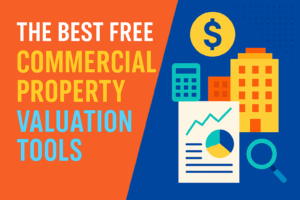Real estate investment has long been a popular choice for individuals looking to build wealth and secure their financial future. When considering real estate investment, one crucial decision is whether to invest in commercial or residential properties. Both options, Commercial vs. Residential, have their own set of advantages and disadvantages, including significant financing differences, and the right choice depends on your financial goals, risk tolerance, and personal preferences. In this blog, we’ll explore the pros and cons of investing in both commercial and residential real estate, with a focus on the financing variances, to help you make an informed decision.
Investing in Residential Real Estate
Pros
Steady Rental Income: Residential properties typically offer a stable rental income stream, as people always need a place to live.
Easier Entry: Investing in residential properties is often more accessible for beginners due to lower upfront costs and smaller scale of investments. Not to mention the substantial benefit of having fixed rate mortgages so long as it is a property with 4 units or less.
Appreciation Potential: Residential properties can appreciate in value over time, potentially providing you with capital gains.
Cons
Maintenance and Management: Dealing with tenant issues and property maintenance can be time-consuming and occasionally stressful for residential property owners.
Vacancy Risk: Residential properties can experience periods of vacancy, leading to a loss of rental income. Having less units increases the overall risk and cost associated with vacancy.
Limited Income Potential: The rental income from residential properties may be lower compared to commercial properties.
Investing in Commercial Real Estate
Pros
Higher Rental Income: Commercial properties typically generate higher rental income, with long-term leases and rent escalations built into contracts.
Professional Tenants: Commercial tenants are often businesses, which tend to be more responsible and reliable in terms of lease compliance.
Portfolio Diversification: Investing in commercial real estate can be an excellent way to diversify your investment portfolio.
Cons
Complexity: Commercial real estate deals can be more intricate and involve longer negotiations, lease agreements, and legal complexities.
Market Sensitivity: Commercial real estate can be more susceptible to economic downturns, as businesses may reduce their space requirements during tough times.
Capital Intensive: The initial investment required for commercial properties is usually higher, making it less accessible for some investors.
Double Edged Sword
When it comes to commercial real estate, there’s a double-edged sword in the form of typical financing. A substantial portion of commercial real estate investments are funded through interest-only loans, often featuring a balloon payment after a predetermined period. This structure can significantly enhance an investor’s return, given the interest-only nature of these loans. However, there’s a caveat – when the maturity date arrives, and interest rates have doubled from their previous levels, this situation can transform a positively cash-flowing property into a potential short sale or default scenario.
Which is Better to Invest in?
The decision between commercial and residential real estate investment ultimately depends on your individual circumstances and goals. Consider the following factors, including the financing implications:
Risk Tolerance: Commercial real estate may offer higher rewards but comes with greater risk. If you’re risk-averse, residential real estate might be a better fit, with more accessible financing options.
Investment Capital: Evaluate your available capital and assess whether it aligns with the upfront costs of commercial properties and the associated financing requirements.
Time Commitment: Consider how much time you are willing to invest in property management and maintenance, as it affects financing considerations.
Diversification: If you want to diversify your investment portfolio, a mix of both commercial and residential properties might be the best approach, requiring varied financing solutions.
Market Conditions: Stay informed about the local real estate market to identify trends and opportunities that can influence financing decisions.
In conclusion, both commercial and residential real estate have their merits and drawbacks, including financing nuances. The choice between them should be based on your specific financial objectives and circumstances. Whether you decide to invest in residential, commercial, or a combination of both, careful research and sound financial planning will be the keys to your success in the world of real estate investment.
For the ability to improve your investment strategy learn more about our state-of-the-art investment software, Compass.
Investing in real estate is a substantial financial commitment, and it’s essential to make a well-informed decision, considering both the financing and investment aspects. By weighing the pros and cons of commercial and residential real estate investment, you can take a significant step toward achieving your financial goals and securing your financial future.













